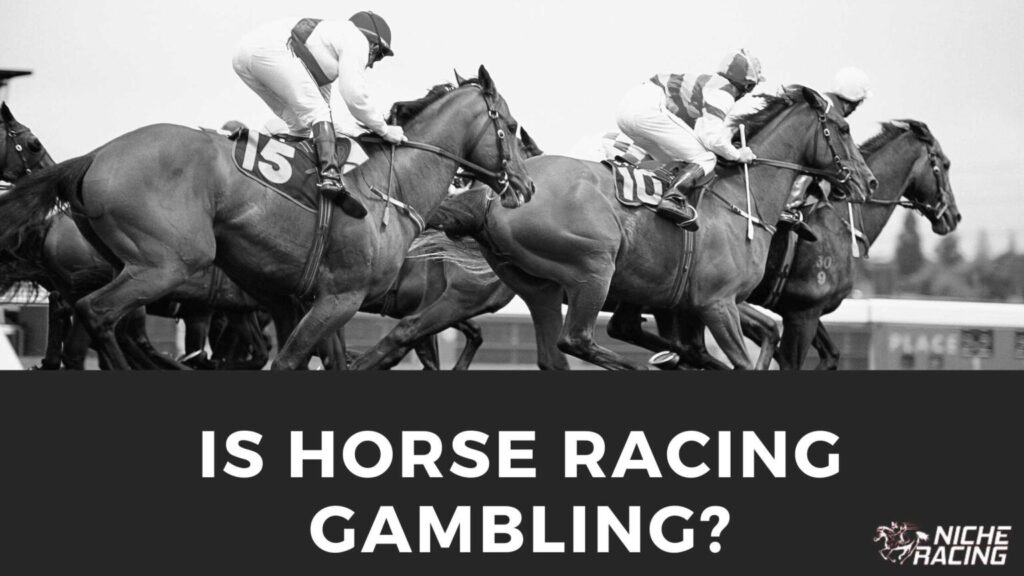Introduction
Horse racing has captivated audiences for years with its thrilling competitions, magnificent horses, and the thrill of placing a wager. However, a continuing argument exists about whether placing bets on horse races counts as gambling. This blog will examine the intricate relationship between horse racing and gambling, examining its cultural significance, historical foundations, and potential legal repercussions. Horse racing, which combines athleticism with the excitement of chance, has been a beloved pastime from ancient societies to contemporary ones.
Whether horse racing is a severe endeavour or just entertainment, bettors continue to be drawn to racetracks and internet venues. The answer to the topic of whether horse race betting constitutes gambling ultimately depends on personal viewpoints, but its continued appeal highlights its importance in the sports and entertainment industries.
The History of Horse Racing and Wagering
Horse racing has its roots in the pleasure and prestige of ancient societies, including the Greeks, Romans, and Egyptians, who hosted chariot races and mounted contests. The sport changed throughout the ages to become what it is now, with races being held in many parts of the world.
The history of horse racing wagering extends back thousands of years. The excitement of the races increased as fans eagerly wagered on their favourite horses during the Roman era. Over time, this custom endured and solidified itself as a cornerstone of the horse racing heritage. The combination of horse racing and gambling has persisted from antiquity to the present, enhancing the sport’s allure and providing fans with a thrilling new level of action.
The Cultural Significance of Horse Racing
Horse racing is an integral part of the cultural fabric in many countries. Millions of fans and wagerers attend these events yearly, from renowned races like the Kentucky Derby in the United States to the Royal Ascot in the United Kingdom. Horse racing is more than simply a sport for many people; it’s also a custom, a get-together with friends, and a chance to see history being made.
Horse racing is engrained in the national identity of nations such as the United Kingdom and Ireland, where national attention is drawn to events like the Grand National. Watching thoroughbred horses charge down the track while boisterous spectators cheer them on is fantastic.
The Role of Wagering in Horse Racing
There is no denying that gambling and horse racing are related. It makes each race an exciting spectacle for onlookers by bringing an element of suspense and expectation. Horse racing betting comes in many forms, ranging from straightforward win, place, and show bets to intricate, exotic bets like exactas, trifectas, and superfectas.
Some people use betting on horse racing to amuse themselves and spice up their race day experiences. For fun, they might make a few little wagers and experience the excitement of seeing their favourite horse cross the finish line first. Conversely, professional handicappers use prior results, track conditions, and other variables to obtain an advantage in horse racing betting, which is a severe endeavour for some.
The Legal Landscape of Horse Race Betting
Depending on the jurisdiction, horse race betting may or may not be legal. Horse race betting is legal and regulated in many nations, including the US, and is available at specific betting locations such as racetracks and off-track betting (OTB) parlours. For religious or cultural reasons, horse racing betting may be restricted or forbidden in other regions, such as Asia and the Middle East.
The Interstate Horseracing Act of 1978 created the legal foundation for off-track horse racing betting and interstate simulcasting in the United States. This legislation made it possible for off-track betting establishments to increase across the nation and for the horse racing industry to flourish.
The popularity of online betting sites in recent years has increased the accessibility of horse race betting by enabling fans to conveniently place wagers from the comfort of their computers or mobile devices. However, as it frequently depends on each area’s particular rules and regulations, the legality of online horse racing betting can be complicated.
The Debate: Is Horse Race Betting Gambling?
Whether or not wagering on horse races qualifies as gambling depends on your point of view. Horse racing entails placing bets on unpredictable results, so it might be considered gambling. It has risks and rewards, and people can win and lose, just like with other types of gambling.
Some contend, meanwhile, that horse race betting is not the same as more conventional gambling options like lotteries or casino games. Horse racing has elements of skill and knowledge, unlike pure chance games, as bettors can use information like race distance, track conditions, jockey performance, and horse form to help them make informed wagers.
Moreover, horse race betting has a long history that precedes many contemporary forms of gambling and is firmly ingrained in the customs and culture of the sport. Rather than being a habit or addiction, many devotees view it as a respectable and socially acceptable kind of entertainment.
Putting it all together
In conclusion, one’s viewpoint and interpretation will determine whether or not horse racing betting is seen as gambling. Horse race betting has distinct features that set it apart from other forms of gambling, even though it shares many traits with them, such as placing money on uncertain outcomes.
In the end, horse racing is a vibrant, diverse sport that unites people from all walks of life with a shared love of horses, rivalry, and the excitement of a good race. One thing is sure: horse racing will always enthral spectators and motivate bettors, regardless of whether it is considered gambling or not.

